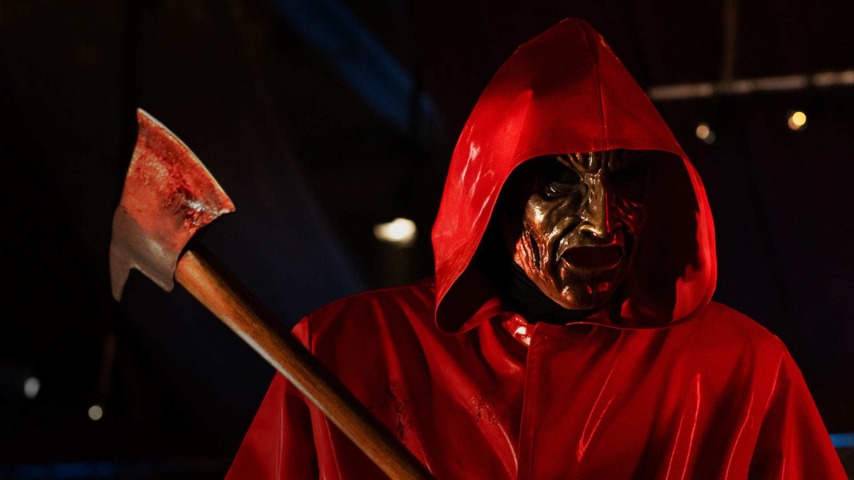Fear Street: Prom Queen fumbles the crown
The fourth installment in the franchise is a drab, muddled mess, where trite clichés and tepid cinematography are what truly deserve to die.
Photo: Netflix
A tawdry plastic crown is worth killing for in Fear Street: Prom Queen, the fourth film adaptation of R.L. Stine’s teen horror book series. Unlike the previous trilogy of Netflix originals released in the summer of 2021—each part respectively distinguished by the years 1994, 1978, and 1666—Prom Queen is a standalone project, meaning that it doesn’t grapple with the lore conjured by its predecessors. It does, however, share a principal setting: that of the supposedly derelict suburb of Shadyside, this time circa 1988. While the period setting and litany of era-specific horror homages should make the film a veritable playground for tongue-in-cheek satire, Fear Street: Prom Queen doesn’t merely fall flat dramatically, but dashes any opportunity for visual intrigue in terms of cinematography, costume design, and, most vitally, its on-screen carnage.
Matriculating senior Lori Granger (India Fowler) has one final goal before graduation: being crowned prom queen. Though clear-skinned and fair-haired, Lori is the clear underdog among the competition, as the popular clique—dubbed “the wolf pack”—are expecting to claim the title. At the top of the ballot is the supremely bitchy Tiffany Falconer (Fina Strazza), the uncontested alpha of the group who relishes every opportunity to taunt Lori about her father’s untimely death (“May your dad rest in hell, Granger,” Tiffany jeers within the first five minutes). Lori’s ardent defender is her best friend Megan Rogers (Suzanna Son, Red Rocket‘s Strawberry), a “stoner horror nerd” who thinly conceals her own distaste for Lori’s pursuit, but opts to support her nonetheless. The only other unconventional candidate is bad girl Melissa McKendrick (Ella Rubin), whose salaciously punk appearance and side hustle as a local drug dealer indicate that she’s mainly vying as a form of rebellion.
As the fateful night approaches, something sinister is unleashed in Shadyside. One by one, the prom queen hopefuls are picked off (and, increasingly, so are their dates), the mounting body count flying completely under the radar of all of the adults. To be fair, it’s easy for viewers to similarly feel unfazed by the kills, as all but one scene—involving a guillotine paper trimmer—lacks any sort of shocking viscera. All too often, director Matt Palmer cuts to black or red before the knife plunges into young flesh.
Vice principal Breckenridge (Lili Taylor) is more concerned with presenting a vague brand refresh of the morally bankrupt student body. She sees Lori as the perfect pick for prom queen because of her comparative innocence and intellect amid the competition. Meanwhile, Nancy Falconer (Katherine Waterston) is obsessed with ensuring that her daughter secures the title, a preoccupation that clearly propels much of Tiffany’s worst behavior. Even Lori’s own mother (Joanne Boland), who is widely speculated to have killed the father of her child on their own prom night 18 years earlier, is completely checked out despite being on the police force.
 Keep scrolling for more great stories.
Keep scrolling for more great stories.
